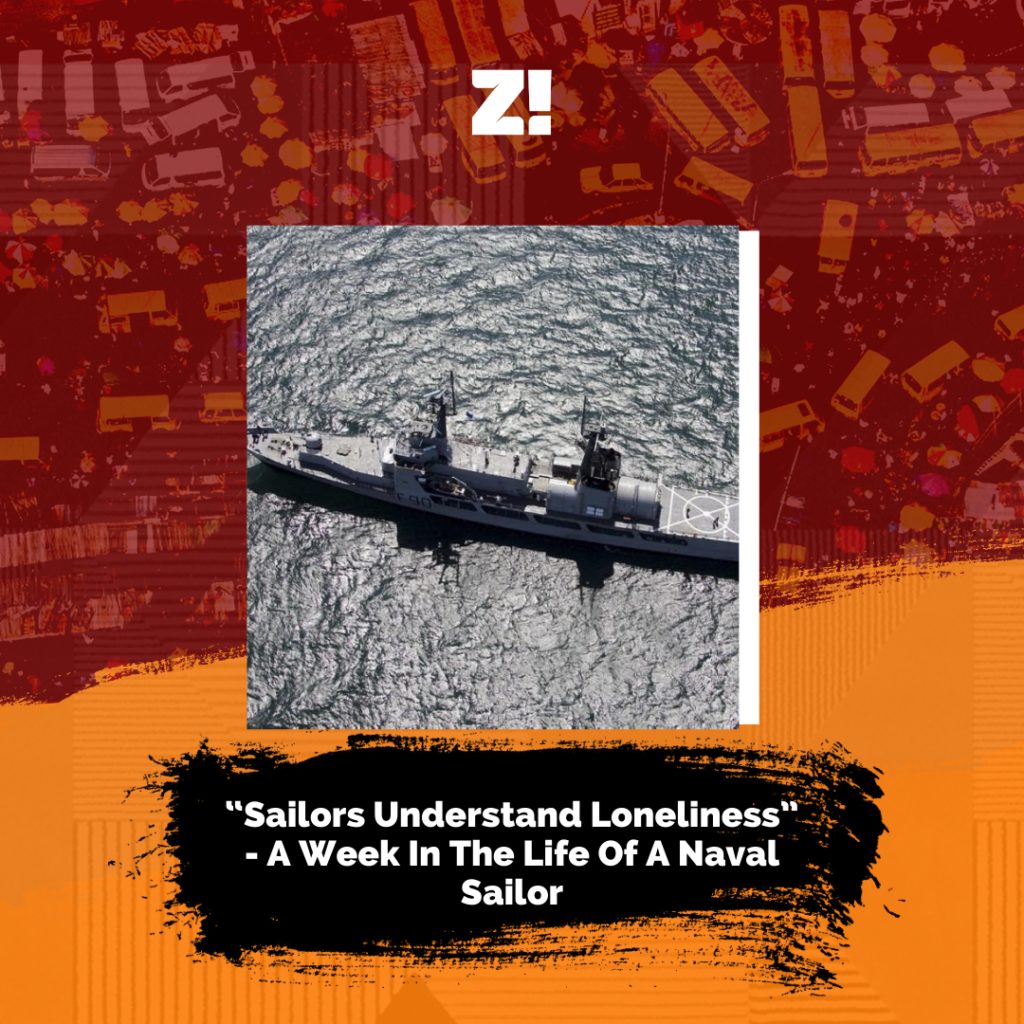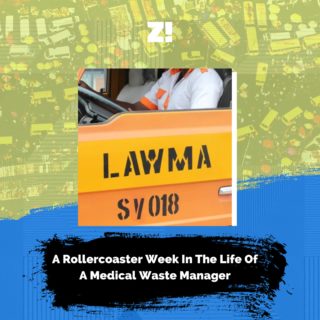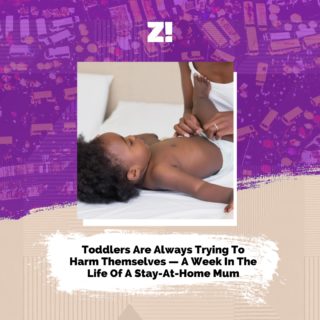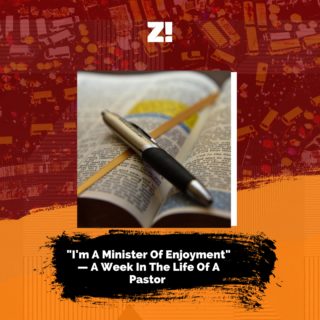“A Week In The Life” is a weekly Zikoko series that explores the working-class struggles of Nigerians. It captures the very spirit of what it means to hustle in Nigeria and puts you in the shoes of the subject for a week.
The subject for today is a 24-year-old sailor in the navy. He talks about the rigours of passing through the Nigerian Defense Academy, the isolation sailors face at sea and his plans for when he exits the navy.

MONDAY:
My day starts at 8 a.m. It begins with a parade, followed by a headcount of everyone in the unit. After the parade, there are no announcements, so we are dismissed to our respective units.
As a naval sailor, my job is divided into two phases: onshore and at sea. And they vary in scope. At sea, I’m concerned with maritime patrol; that is, preventing illegal bunkering, illegal fishing, illegal migration and drug smuggling in and out of Nigeria. We have a template for interrogating ships coming into Nigerian waters and depending on the answer, we know who’s legal or illegal.
Onshore, the work is administrative and round the clock. There’s a lot of budgeting and preparations for when we go sailing. The finance guys calculate how much the journey will cost, the logistics guys prepare for the amount of food we’ll be needing. The navigation guys plan the route and best tracks. We use the time spent on land to prepare to go back to sea.
Today, I’m on duty onshore. This means I have to work for 24 hours and supervise the men on the ground. I can tell that it’s going to be a long day, but I’m not complaining. I signed up for this.
TUESDAY:
Sailors understand loneliness. The hardest part of this job is feeling isolated. At sea, we’re cut off from the rest of the world because there’s no means of communication outside of the official channel. Sometimes, we go as long as two weeks without hearing from family and friends. It’s not like it gets better when we come back to the shore. Naval bases are located around the coastline, which means we’re anchored in a village or slum with a bad mobile network. We also can’t go more than 100 km from our base; we’re stuck with no form of entertainment both on land and at sea.
Isolation forces you to discover yourself. You have time and no phone to distract you from your thoughts. I spend 45 minutes every day thinking about things ranging from bad to good depending on my mood.
Today, I’m thinking about how isolation made me discover my talent in photography. I’m going through pictures I’ve taken at sea: pictures of the sunset, sunrise, lightning at sea.
Looking through the pictures, I can’t help but remember my scariest experience at sea. One time, our communication satellite got faulty while we were sailing around Sao Tome and Principe, so we could neither receive nor send out signals. To further worsen things, one out of our [two] main engines developed a fault. We had to manage just one. It was scary to be down the high sea with no means of communication with people on the land. I made peace with the fact that the other engine could pack at any time and we’d drown. Thankfully, with a combination of one engine and prayers from pastors and imams on board, we arrived safely on the shore.
That’s just a typical day on the job.
WEDNESDAY:
I’ll tell you this for free — prisoners don’t suffer as much as we did in the Nigerian Defense Academy (NDA). Even though my time there was fun and interesting, I have two fractures [leg and hand] as a testament to my time there.
The first fracture was caused by a senior. As a cadet, I’d scale the fence to go have fun in town. There was this senior who promised to break my leg the next time I did this. As a Northerner not afraid of anything, I didn’t listen. One day, when I got back from having fun, the guy took a golf stick and broke my leg.
Because we’re trained not to report our seniors in the NDA, there was no case. The senior took me to the medical centre; I got POP and crutches. By the next week, I was back to scaling the fence with my POP to go have fun in town. I was on crutches for 15 weeks.
The second fracture was for no reason at all. Some guy wanted to hit my head with a golf stick, I blocked it with my hand and it got fractured. I wondered what if the stick had hit my head.
People see this as abnormal, but that’s just how life was in the NDA. From secondary school, we went straight into the academy and were cut off from the world. We had no social life, no games, no drama club, no phones for five solid years. We thought and saw life differently from people who went to regular universities. At the end of the day, we had to adapt.
I eventually became good friends with the senior who broke my leg and he called today. During the call, I couldn’t help but recall how far I’ve come as a person and as an officer. I bear no resentments because whatever happens in training stays in training. As officers, we have moved past that.
THURSDAY:
Many officers are tired of their jobs, but you can’t just quit. You have to put in a formal application, and if you’re lucky, they’ll allow it. If they don’t, you remain here. Unlike civilians who’d feel stuck because of this, officers have been brainwashed so much that we can’t process this thought.
What does it mean to be stuck at a job? — I can’t process the thought.
I exist solely to be used by the navy. In Maiduguri, people are dying every day, yet they keep sending soldiers. You can’t refuse to go, you can’t beg. You are at the army’s mercy. The same way I exist to be used is the same way I have men under me for use; it’s just the cycle of things. You don’t have to be happy with a job as long as it pays the bills.
I’ve gotten so used to this job that I don’t know if I can still adapt to civilian life. I’m used to the military environment, the dress up and the discipline.
Even though it’s still early, I’m thinking about my retirement. I’ll most likely go back to my village to farm — I’ll be going there from morning till evening, I won’t have to work every day and I’ll be my own boss.
At least, I’ll be guaranteed that after a long day, I’ll sleep in my house, on my bed, on land.
Check back every Tuesday by 9 am for more “A Week In The Life ” goodness, and if you would like to be featured or you know anyone who fits the profile, fill this form.




